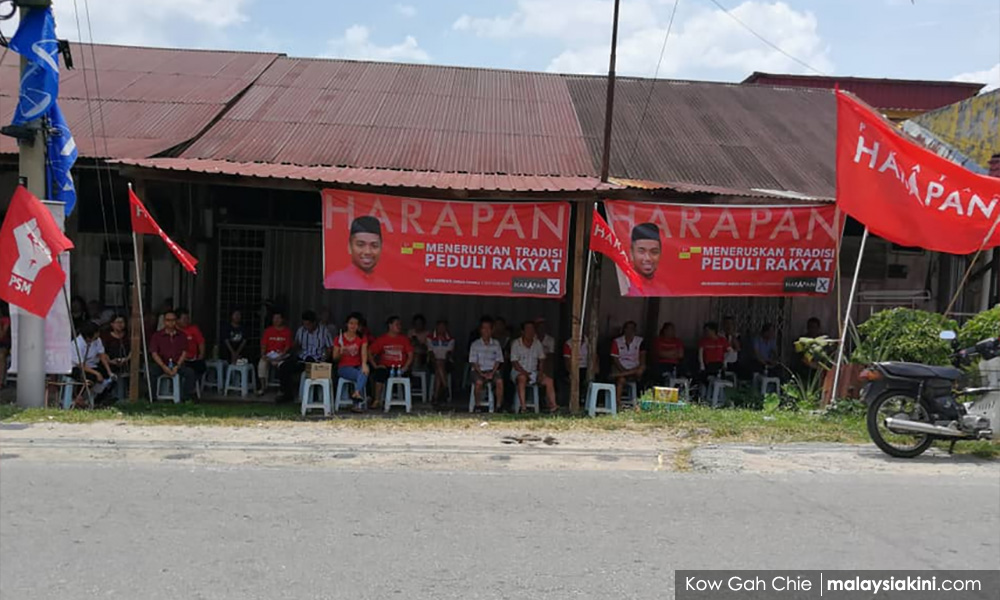
The French statesman Charles de Gaulle once said: ‘Politics is too serious a matter to be left to the politicians.’
This could also be said of the Semenyih by-election – where 54,000 largely urban voters face the serious decision of whether to endorse Pakatan Harapan, return BN to the seat it has never lost before GE14 or choose another path, including not to vote at all.
Despite growing cynicism about politicians in Malaysia (and sadly there is a good reason for some of this cynicism), the choice of the Semenyih voters will matter.
This by-election will not affect the balance of power in Selangor state. However, the campaign and outcome will serve to further consolidate new Malaysia’s political battle lines and potentially constrain the prospects for reform.
A Harapan loss in Semenyih will have a derailing effect on the governing coalition, already weakened by its loss in Cameron Highlands, and embolden the BN coalition that is in desperate search of an afterlife.
Parti Sosialis Malaysia (PSM) and the independent candidate will have an uphill battle breaking the mould of the competition between the two larger coalitions, but they will serve to raise important social welfare issues and mobilise anger against Harapan, which goes into this contest in weakness rather than strength.
Drawing from polling station analysis of GE14, this article addresses some of the issues facing the political parties in this by-election and argues that there is a growing disconnect with the electorate.
Testing Umno myths
Now, six by-elections since May 2018, the post-GE14 political terrain has increasingly featured practices of the past. Stoking Malay chauvinism has topped the list, with BN capitalising on insecurity and fear. Voters are being called to ‘protect your race and religion’.
This call rests on the myth that Umno was indeed their ‘protector.’ Given the shambles that Umno left the country’s finances in, the damage to Malaysia’s reputation and the hardships and inequalities experienced by many Malays across the country, this message hopes to build on the adage that ‘Malays forget easily’ - the predatory behaviour of the Najib (Abdul Razak) government.
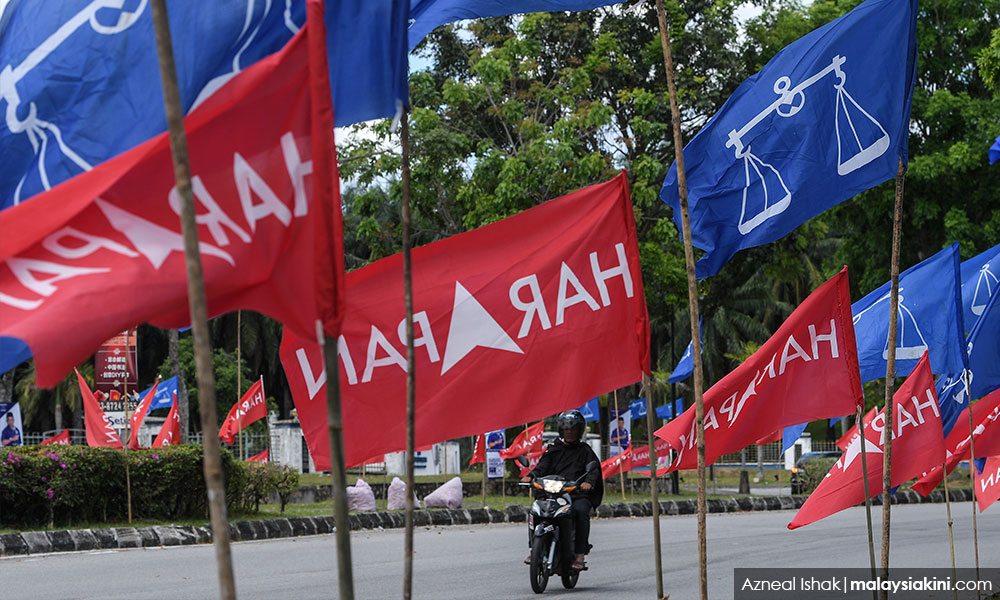
It also ignores that conditions within Umno are dire; Strained by lack of access to funds, with its leaders facing multiple criminal charges and its legal future in the balance, Umno, as a party, is not in a position to deliver to its base. Its current focus is on saving its leaders. The use of “Bossku” as a campaign message is illustrative, as winning the by-election is about Najib’s search for protection, rather than the Malay community at large.
The other myth that is being projected is that Malays are united; they are one group. Semenyih in GE14 showcased what seems to be have been forgotten, that the Malay vote is sharply divided. My analysis of Semenyih’s polling station results found that the estimated support along Malay votes was split three ways, with Umno and Bersatu essentially capturing the same share, 41 percent and 37 percent respectively.
Bersatu’s share of the Malay voters in Semenyih was 15 percent more than the national average for Harapan, in keeping with patterns in urban areas, where more Malays from educated and middle-class backgrounds reside.
To push Malays into one group, to characterise their differences, is not only wrong, but it disregards the political diversity of the community as a whole – a lesson that Umno ignored to its own peril.
PAS' political polygamy
This racialised prioritisation of the Malay vote has contributed to the wheeling and dealing for the estimated 22 percent of Malay support that PAS won in Semenyih. Bersatu and Umno both want this support. Few recognise that much of this vote was never for PAS in the first place, as it represented ‘protest’ against Umno, rather than a vote for the Islamist party.
This hasn’t stopped the deal-making. Bersatu is especially focused on winning ‘Malay votes’ with the aim to address the ‘deficit’ of support for it from the Malay community. PAS, on its part, is claiming that is will work with all Malay political parties, apparently willing to engage in political polygamy irrespective of the party involved for the marriage of its interests. This accounts for the improved relations and ratcheting down of criticism between Bersatu/Mahathir and PAS.
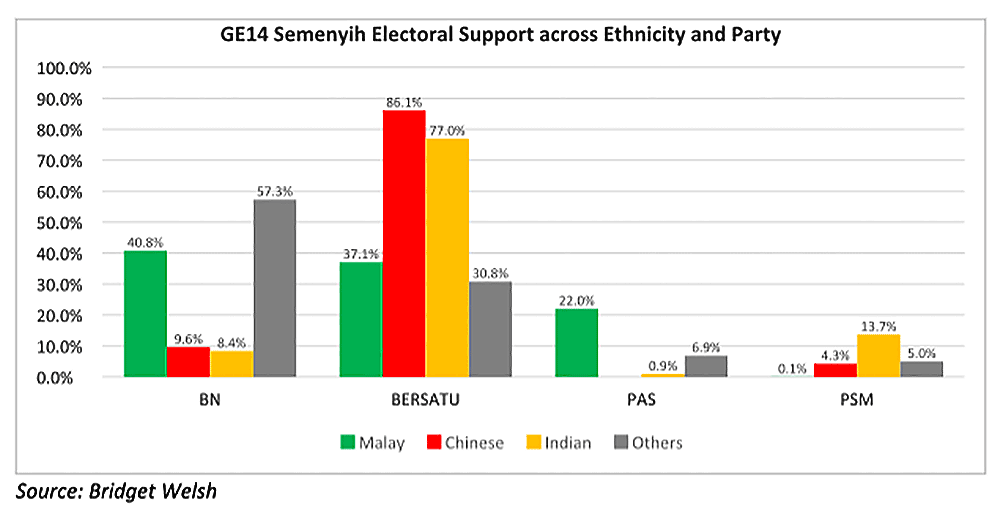
PAS’ polygamous engagement is compromising the party, as it is becoming more like Umno. Not only is PAS collaborating with Umno, but it is also increasingly adopting many of its practices as well – money politics, denial, racialised rhetoric, and of late, the active promotion of division within Harapan through deflective storytelling.
They justify these actions with the mantra that the ends (Syariah law) justify the means. Yet, this outcome is that PAS is being damaged along the way and a broader cynicism with political parties as a whole, is setting in. Political deals are eroding trust between the party leadership and the grassroots.
This is exacerbating other trends of weakening political parties. The machinery of the member-based parties of Umno and PAS are not functioning as well as the past – not least of which is the product of being out of power and lacking resources.
Rather than address the underlying problems the parties face, race-based rhetoric and deals have become the easy options. These options do little to win long-term party loyalty from
voters.

Pakatan’s own conflicted national engagement
Harapan political parties are also facing their own tensions. Bersatu’s obsession with the Malay vote reinforces the sense that Harapan is focused on race rather than Malaysia as a whole.
This can have political consequences in Semenyih. Given the multi-ethnic configuration of the state seat and political divisions within the Malay community, the by-election will be shaped as much about Malays as is it about other communities. A decisive third of the electorate is non-Malay.
Semenyih is perhaps the biggest test to date on whether Harapan can maintain non-Malay support in the urban areas, which was critical for putting the new government into office. It tests whether Harapan can project itself across the racial communities, rather than pandering to individual groups. An indication of this will be whether voters go to the polls at all. It will be difficult to maintain the high levels of turnout, which were pivotal for Harapan’s 2018 general election victory.
Semenyih also brings to the fore, assumptions about how parties should function in ‘new Malaysia’. Many in Harapan assume that voters will support the party in power for patronage advantage. This is especially true of Bersatu. This ‘contract’- supporting party is caught in a difficult bind. It does not have the patronage machinery on par with that of Umno.

Urban voters care predominantly about good governance. Corruption is of concern, but not as important as having a decent paid job, quality service provision and maintaining a good standard of living for families. Among urban voters, Najib lost power for rising inflation and contractions in opportunities in the face of the ostentatious spending tied to the 1MDB scandal.
Harapan has the challenge of convincing voters that it can offer a better government. Key in this regard will be its record in Selangor since 2008 and what the advantages of having national power are for improving governance at the state level. Harapan has been so focused on building a new federal patronage machine that it has forgotten it already has a record at the state level to strengthen.
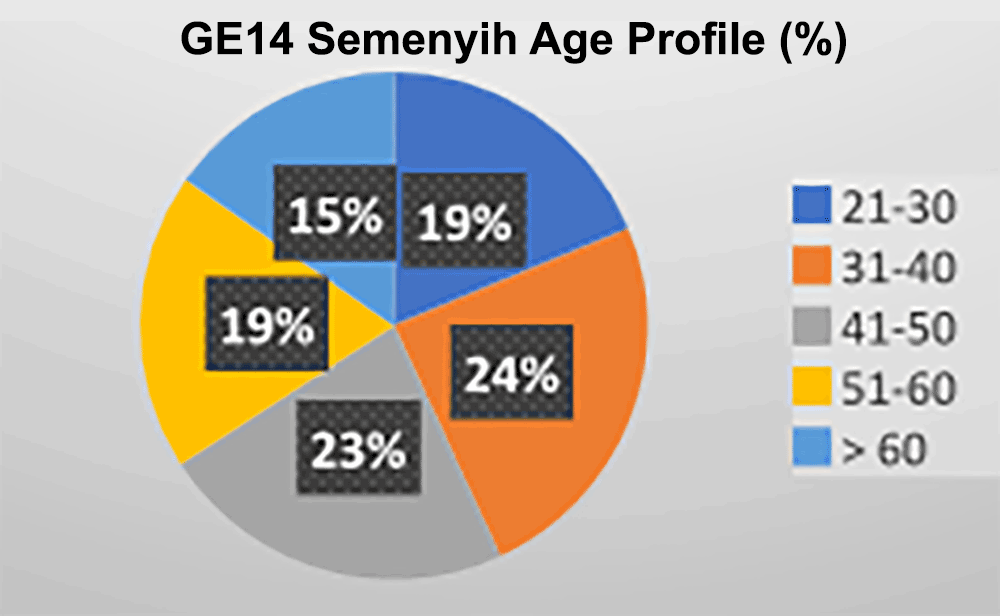
A particularly important group in the Semenyih electorate concerned with governance is youth. The youth were Harapan’s support base in Semenyih. Bersatu captured the votes of 57 percent of those under 30, and the majority of voters under 50. Umno did not even win a third of the younger voters.
These voters want results, especially on the economy, as bread and butter issues are much more important to these voters than religion. The more impatient young voters want to see what Harapan will do for their future. Nearly half of the registered electorate, 43 percent, is under 40.
Since BN won the Cameron Highlands by-election, Harapan has been attempting to somewhat change its public engagement. There are differences in the coalition itself on what to emphasise – patronage or policies. Nevertheless, the Semenyih campaign has seen more substantive engagement with policy issues than those in earlier by-elections.
There has been a flurry of announcements of new programmes, health insurance, for example, and a new framework for highway tolls. It is not clear whether these measures are tied to the election or part of a broader set of programmes. The new Harapan measures are controversial, untested and have yet to be properly implemented.
However, Harapan’s initiatives are buried under the political noise of political infighting and its mixed performance record to date. It remains to be seen whether the steps toward improving governance will get a fair hearing.
The fact is that all of the political parties are facing an erosion of political trust. Much of this weakening is of their own making. Semenyih voters will ultimately have to decide which of these weaker political parties offer the strongest alternative, in spite of their weaknesses. - Bridget Welsh
Pelaku yang meletakkan patung berhala di dalam surau ditahan polis

Siakap senohong...
Pertama kali saya dengar istilah “bohong sunat” ialah masa menonton filem komedi P Ramlee - Madu Tiga.
Jamil (lakonon P Ramlee) membohongi isterinya (lakonan Zaharah Agus) bahwa dia terbabit dalam kemalangan. Dilanggar lori katanya. Ketika isterinya ke dapur untuk buat kopi, bapa mertua Jamil (lakonan Ahmad Nisfu) bertanya bagaimana dia boleh dilanggar lori.
Jawab Jamil: “Langgar bohong pak. Bohong sunat.”
Anda tahu cerita itu seterusnya. Lucu dan kelakar .
Bohong sunat pun kerap dikaitkan dengan lucu dan kelakar. Tapi kesimpulan lazimnya bohong sunat dilafaz untuk menyelamatkan diri. Nak hidup.
Tidaklah saya tahu sama ada kata kata Nik Abduh Nik Aziz pada rakaman audio yang heboh diperkatakan baru baru ini boleh diklasifikasikan sebagai bohong sunat.
Yang saya tahu berikutan hujah Nik Abduh dan pemimpin PAS mempertahankan tindakannya. PAS dituduh membuat pembohongan sesuatu yang mematuhi syariah. Dalam bahasa Inggeris shariah compliance.

Namun ini bukan mengenai Nik Abduh mahu pun pasal bohong pematuhan syariah, istilah baru itu.
Berbalik kepada bohong sunat. Istilah lama yang kerap dan masih digunakan dan kerap ditanya kepada para agamawan.
Saya Google dan mendapati informasi ini. Menurut beberapa ustaz, tidak ada (istilah) bohong sunat dalam Islam. Bagaimana pun menurut mereka memang ada pengecualian berdusta atau berbohong.
Tetapi kata para ustaz ini bukan bermakna ia sunat dilakukan sehingga dapat pahala atau ganjaran. Yang dibolehkan atau pengecualian diberi berbohong mengenai perkara tertentu dan dalam keadaan tertentu.
Cukup setakat itu sebelum saya dituduh cuba berkhutbah tanpa tauliah agama.
Untuk tahu secara terperinci sila Google “bohong sunat.” Atau buat carian di Youtube. Ada nama nama besar antaranya Ustaz Azhar Idrus yang memberi penjelasan.
Bercakap mengenai berbohong, memang susah untuk memastikan atau mengesan bila seseorang berbohong. Apatah lagi jika orang itu selamba dan “cool” ketika berbohong. Orang yang cukup meyakinkan.
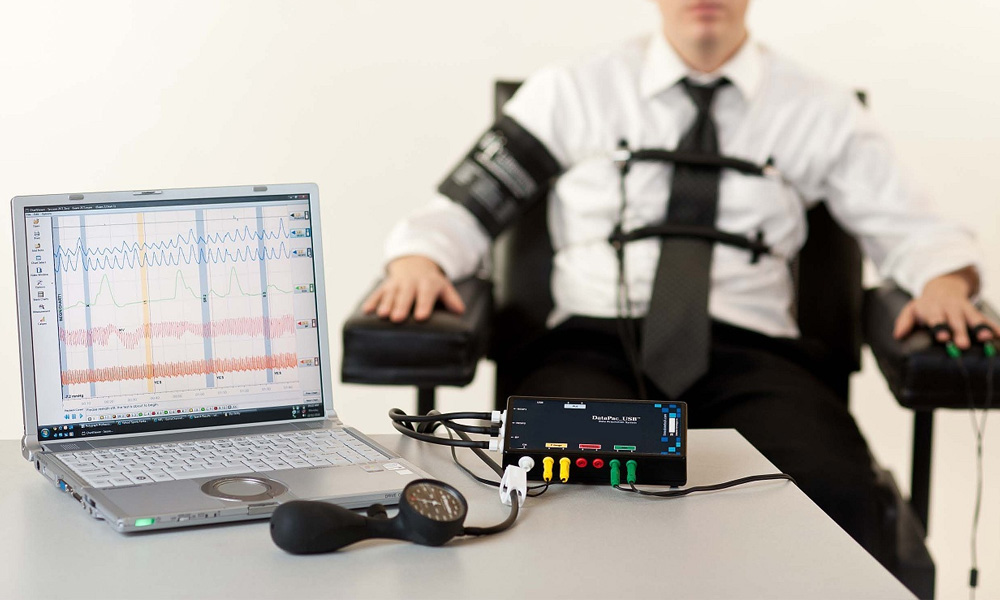
Alat kesan bohong
Namun ada alat pengesan pembohongan, lie detector atau polygraph test. Biasanya digunakan oleh pihak berkuasa dalam menyiasat jenayah .
Ujian poligraf mengesan pembohongan menerusi tindak balas, gerak geri dan perasaan orang yang diuji. Ujian dijalankan dengan mengaju beberapa soalan.
Secara am seseorang yang berbohong dikatakan akan gelabah, gugup dan gementar bila disoal. Lantas degupan jantungnya pantas. Semua ini dicatat dan dirakam.
Tetapi jika orang yang diuji tenang dan mengawal perasaan dengan baik walaupun dia menipu dan berbohong catatan tidak akan menunjukkan panik, gugup dan gementar. Kemungkinan besar dia akan lulus ujian mengesan pembohongan.
Dalam erti kata lain ujian poligraf boleh diatasi. Pembohong yang cekap boleh mengalahkannya. Beat the system, kata Inggeris.
Hakikatnya tidak ada ujian atau prosidur yang mencatat kejayaan 100 peratus dalam mengesan si pembohong.
Melainkan si pembohong itu seperti Pinocchio, “budak” yang hidungnya akan bertambah panjang setiap kali dia berbohong. Tapi itu cerita dongeng. - Mohsin Abdullah,mk
'Macam2 bohong parti politik tapi yang paling melampau adalah ..' - Dr Maza



No comments:
Post a Comment